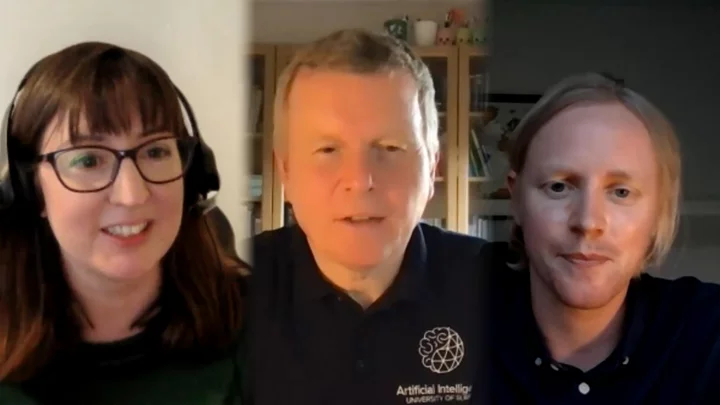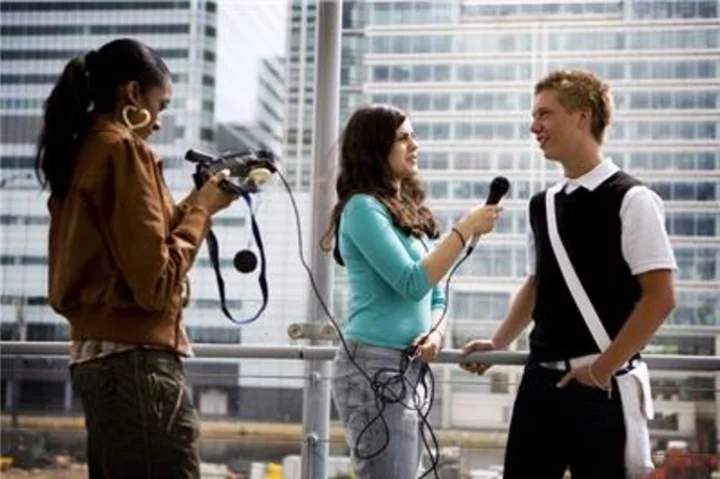Artificial intelligence poses a major threat to humanity and the world – but also has a range of positive uses, experts have said.
Those positive uses include the development of new kinds of life-saving drugs, revolutionary new educational technologies and ways to make media and art more accessible to people. But the potentially liberating and exciting uses of AI risk being overshadowed by the fear and panic over the potential problems of the technology, the experts warned.
That was the conclusion of The Independent’s latest premium live event, which saw experts discuss the question: “How much of a threat does AI really pose?”
To attempt to answer the question, The Independent’s technology editor, Andrew Griffin, was joined by deputy technology editor Anthony Cuthbertson and two world-recognised experts in their field. Andrew Rogoyski is director of innovation and partnerships at the Surrey Institute for People-Centred AI, and Catherine Breslin is a machine learning scientists and consultant who previously worked on Amazon Alexa and at other companies, and now runs Kingfisher Labs, an artificial intelligence consultancy.
All panelists agreed that one of the most pressing issues about artificial intelligence is it being used to fill the internet with “sludge”: “automatically generated noise”, as Rogoyski described it, that could make it difficult to tell humans from artificial intelligence systems.
“If you think of how much we depend on information on the internet, the idea that it's filled with rubbish – it's bad enough as it is,” he said. “But the idea that it's automatically generated, I think, is the most real extant threat of the misuse of AI.”
Catherine agreed and noted that “sludge” could be made up of not only text but also “images and video and audio as well”, warning that people are not aware of just how easy it is to create convincing audio and video that pretends to be somebody else.
“We won't necessarily be able to trust what is real and what is not real and without better ways of validating where images and video and audio come from,” she said. “So I think that this being able to generate media quickly, convincing media quickly, and then being able to send it out on the internet and the speed and scale at which information disseminates there – I think those two things combined will make for interesting times in the future when we have to grapple with the realities of validating our media.”
But even amid that fear, the experts said that there were many very exciting possibilities being offered by technology. “Some of the biggest problems humanity faces could potentially be solved by an advanced artificial intelligence,” said Cuthbertson, pointing to its use in medicine and elsewhere.
Rogoyski said that many of the benefits of AI are already being “taken for granted”. The technology is already used in science, medicine, to moderate the internet and to improve manufacturing and logistics, he said, and in every day ways such as the organisation of photos on our phones and information in our search engines.
Even the fear that people could lose their jobs to artificial intelligence might be misplaced, the experts said, if companies instead use the technology to augment rather than replace their employees. Already, legal professionals are using artificial intelligence to navigate court audio, and doctors are using it to transcribe medical notes – freeing those people up to do helpful work for their clients and patients, Breslin noted.
The entire conversation – which included discussions on the military use of artificial intelligence, its effects on the arts, and much more besides – can be viewed above.
Read MoreGoogle may soon roll out AI ‘personal life coach’
‘I’m scared’: Snapchat’s AI posts image that terrifies users
How much of a threat does AI really pose? Get your ticket for our free event









